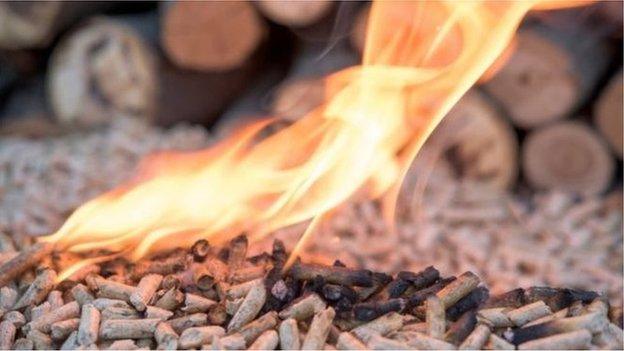RHI inquiry: 'Two versions' of meeting minutes
- Published
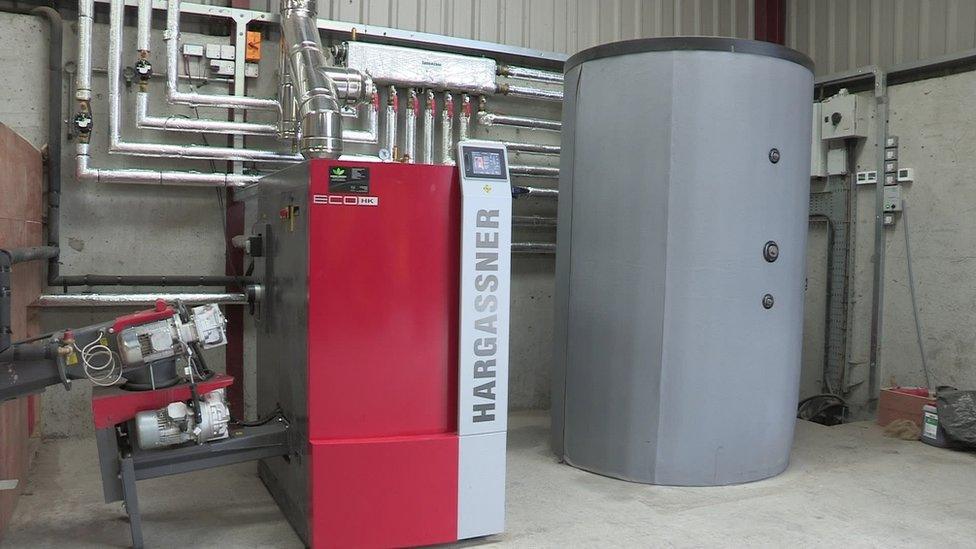
Overly-generous subsidies meant the costs of the scheme spiralled out of control
There were two versions of the minutes of a meeting which warned of the risks of the Renewable Heat Incentive, the public inquiry has heard.
A lawyer for Ofgem, the body paid to run the scheme, wanted the dangers of proceeding without a key cost control "hammered home".
Marcus Porter said the Northern Ireland scheme should not go ahead without an emergency brake mechanism.
He did not like a decision to proceed and bring in cost controls later.
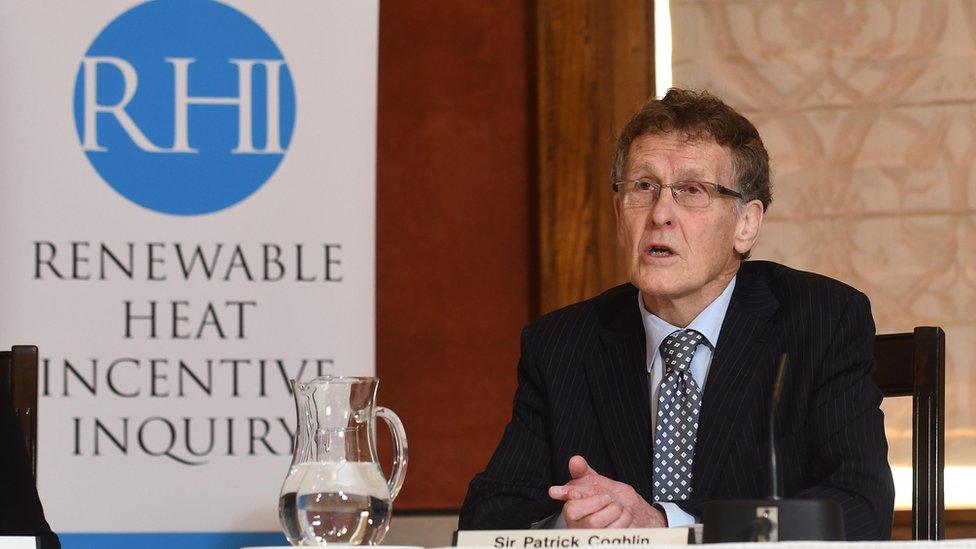
The inquiry is being chaired by Sir Patrick Coghlin
The Renewable Heat Incentive (RHI) offered financial incentives if firms switched to renewable energy.
But critical flaws meant its claimants could earn substantial returns, far greater than intended.
On Wednesday, the public inquiry heard that officials from the Department of Enterprise, Trade and Investment (DETI) were told of the concerns in a teleconference in June 2012.
Mr Porter had referred to "legal risks and administrative difficulties arising from the deficiencies" in the GB scheme, which the Northern Ireland scheme was closely mirroring.
'Watered down'
But another Ofgem official, Keith Avis, told his boss he would "revisit the text of the minutes" to capture Mr Porter's recommendation but "without overplaying the deficiencies" of the GB regulations.
As a result, Mr Porter's use of the term "legal risks and administrative difficulties arising from the deficiencies" of the GB scheme was changed to "logistical and presentational issues".
Giving evidence to the inquiry, Mr Avis was asked whether his version of the minutes had been "watered down".
He said he did not want to appear critical of the GB scheme because Ofgem was also administering it on behalf of the Department of Energy and Climate Change (DECC).
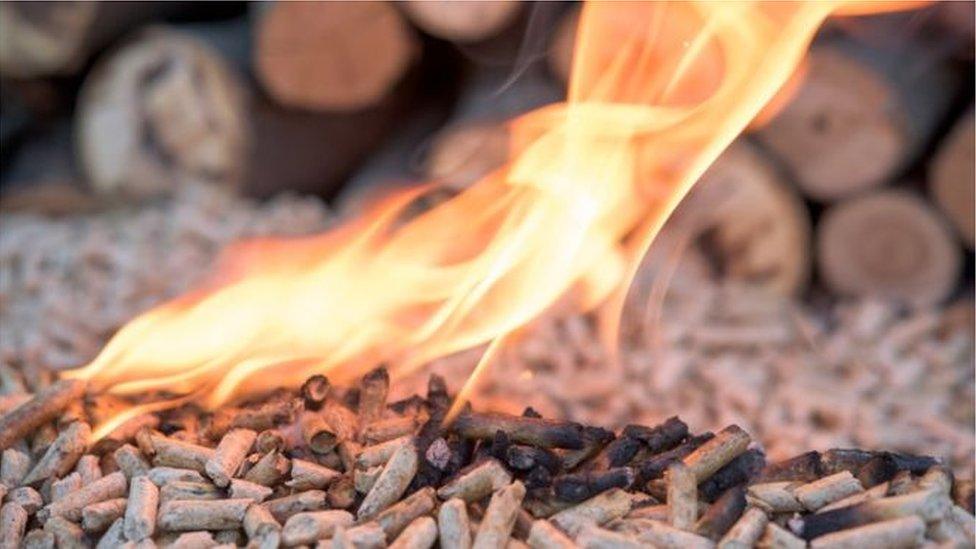
The RHI scheme subsidised the cost of fuel to encourage the use of renewable heating systems
He told the inquiry he was concerned it might compromise the relationship between Ofgem and DECC.
Inquiry chair Sir Patrick Coghlin said the wording of a lawyer had been changed "because you're worried about offending a GB government department".
Sir Patrick said the result had been to convert clear legal language into much less strong language in order to preserve a contractual, financial relationship with a government department.
"How can that be justified.... if you are a professional body responsible for holding professional standards?" he asked.
DETI was provided with the "watered down" version of the teleconference's minutes and did not receive the copy that contained Mr Porter's original, more forthright legal advice.
Inquiry counsel David Scoffield QC said that might have been significant because it meant any DETI officials who read the minutes but were not involved in the actual teleconference, may not have realised the seriousness of the risk to the RHI scheme.
'Slow uptake'
The inquiry, which is taking place at Stormont, was set up to investigate the circumstances surrounding the energy initiative, after costs spiralled.
The RHI scheme offered to subsidise the cost of claimants' fuel - mostly wood pellets - for running new renewable heating systems.
But the fuel actually cost far less than the subsidy they were receiving, effectively meaning that users could earn more money by burning more fuel.
The most recent estimate put the projected overspend at £700m over 20 years, if measures to control the cost are not implemented.
The scandal generated significant public concern and the fallout led to a major political crisis in Northern Ireland that exists to this day.
- Published8 February 2018

- Published7 December 2017
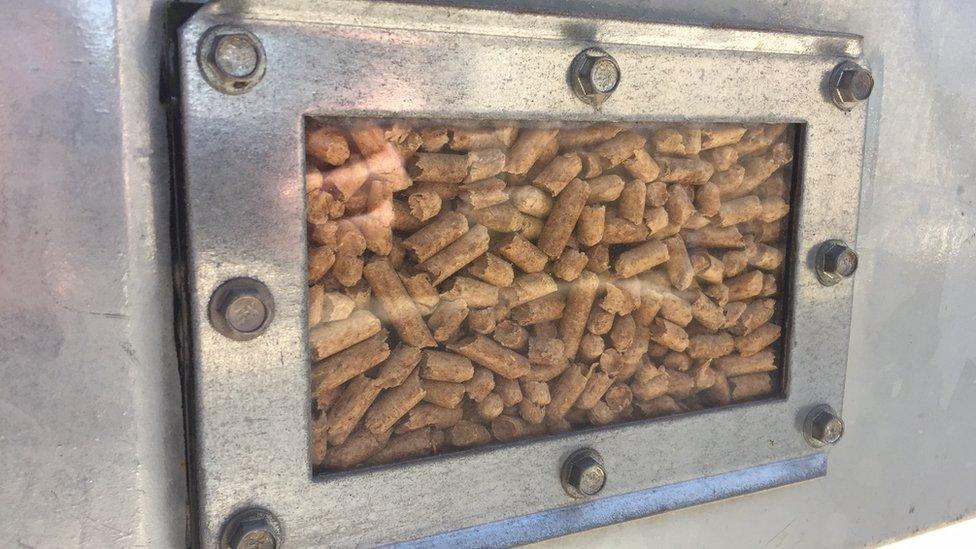
- Published30 January 2018
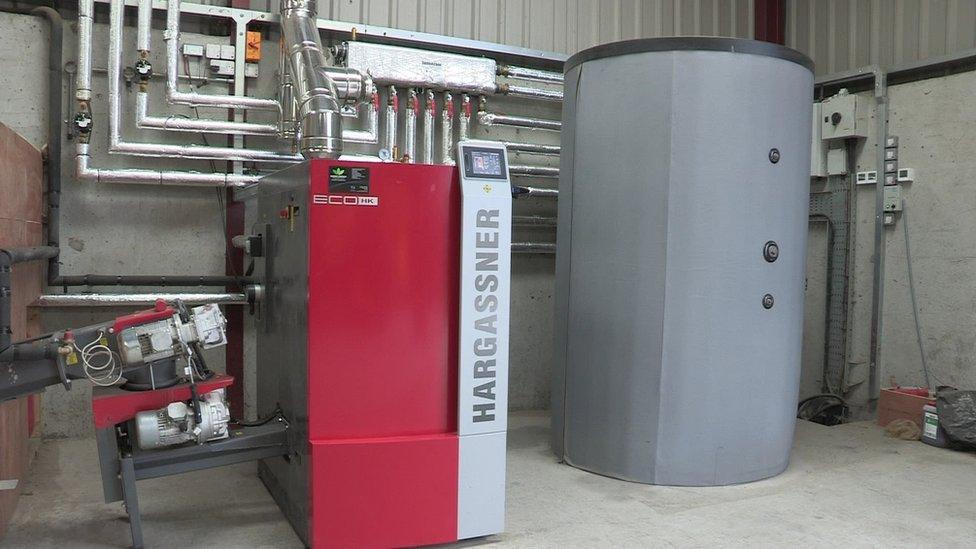
- Published17 January 2017
